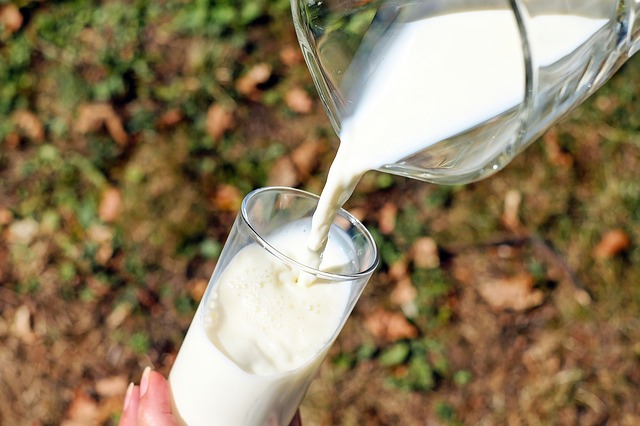Kids who drink alternatives to cow milk, such as soy, almond or rice substitutes, are slightly shorter than children who drink dairy, a new study reports.
According to researchers, each cup of alternative milk drunk is linked to 0.15 inches lower height than the average for a child’s age, CNN reports. Jonathon Maguire, lead author on the study and pediatrician and researchers at St. Michael’s Hospital in Toronto, says,
We found that children who are consuming non-cow’s milk like rice, almond and soy milk tended to be a little bit shorter than children who consumed cow’s milk.
He explains further, “For example, a 3-year-old child consuming three cups of non-cow’s milk relative to cow’s milk was on average 1.5 centimeters shorter.” The difference is over half an inch, which Maguire says is “not a tiny difference when you’re 3 years old.”
The study involved 5,034 healthy Canadian children ages two to six years old, averaging 36 months old, starting from December 2008 to September 2015. Fifty-one percent of the participants were male, and were recruited from nine family and pediatric practices.
Among the participants, 5% drank non-milk alternatives, 84% drank only cow’s milk, 8% drank both, and 3% drank neither.
The most surprising find, Maguire says, was “that the amount children were shorter depended on how much they were consuming.” He says, “It’s not like if you’re not consuming cow’s milk, you’re a little shorter. It’s more like if you are consuming non-cow’s milk, with each cup that a child consumes, that child on average appears to be a little bit smaller, a little shorter. That’s a bit surprising.”
Does the difference in height correlate to height in adulthood? Maguire says that’s one question that needs to be examined closer. “We don’t know if the kids consuming non-cow’s milk, maybe they catch up over time, or maybe they don’t. Time’s going to have to tell.” He does point out that pediatricians know that children “who are on a certain percentile line in terms of height tend to stay on that line for the rest of their childhood and into adulthood.”
Other researchers argue that the study did not take into consideration other aspects of the children’s diets, which could be contributing to the growth difference, and that taller does not always mean healthier. But doctors and researchers all agree that children should get the proper amount of protein, calcium, potassium and magnesium, whether it’s from cow’s milk or from other sources.
The study was published in the American Journal of Clinical Nutrition.
























